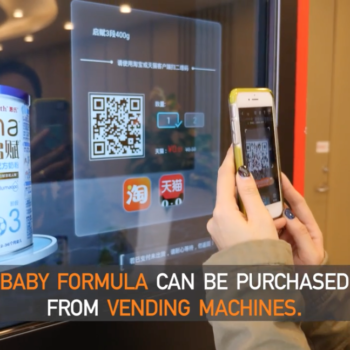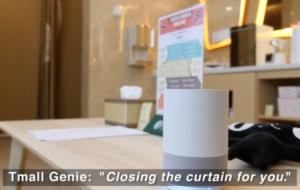Weekly Focus: Malaysia Taps Alibaba's E-Commerce Knowledge

This week, we put the spotlight back on Alibaba as the Chinese e-commerce giant looks to extend its industry knowhow to other Asia-Pacific markets.
Malaysia, for instance, sent 30 college students to Alibaba's global headquarters in Hangzhou, China, where they spent 10 days attending lectures and meeting with the company's business unit leaders. They also visited Alibaba's Hema supermarkets to understand how the e-commerce operator melded online and offline capabilities to offer its New Retail customer experience.
In 2010, Malaysia established the Entrepreneurship Policy for Higher Education as part of efforts to promote e-commerce and boost education in major tertiary education institutions in the country.
Launched under Alibaba's Global Initiatives Program, the student training scheme was "an integral part" of the company's multifaceted approach to driving the global e-commerce industry, the company said.
Alibaba's vice president and the programme's lead, Brian Wong, said: "Our goal is foster a generation of talented and passionate young entrepreneurs who can help bring new innovations and transform the e-commerce landscape of their home countries."
The programme also encompassed a Train the Trainers module, in which the Chinese vendor earlier this month hosted business-related college professors from Malaysia who underwent training on best business practices in cyber retail.
The objective here was to nurture skillsets that could support the e-commerce sector as it expanded and evolved in Malaysia, Alibaba said.
The e-commerce operator had been cultivating a close relationship with Malaysia, where it set up its first overseas Electronic World Trade Platform hub last year and would open a regional e-commerce and logistics facility by the end of 2019.
Alibaba AI-powers nursing rooms
Back in its home turf, Alibaba is looking to tap a mother's shopping instincts by suiting up nursing rooms with artificial intelligence (AI) and other high-tech tools.
The company planned to roll out these facilities, dubbed Smart Mothers' Rooms, at shopping malls across China, offering a "hassle-free and high-tech space" to nurse their babies and purchase related products at the same time.
Each room is armed with Alibaba's voice-assistant speaker, Tmall Genie, which can be used to control the curtains, music, lighting, and other connected devices such as humidifiers and baby formula mixers.
Baby products also can be purchased via vending machines located in the room or Alibaba's Cloud Shelf, which displays items on a digital screen that customers can browse and purchase via their Tmall account and have the products delivered to their homes.
Alibaba has roped in brand partners such as healthcare company Wyeth, food company Danone, and diaper-maker Moony to feature their products in the nursing rooms.
Alibaba currently operates six Smart Mothers' Rooms in cities such as Beijing and Shanghai, and plans to open 1,000 of these nursing rooms across China over the next two years. It hopes to expand the location of these rooms to supermarkets, hotels, airports, and train stations.
It also would add facial recognition technology and exclusive Tmall member benefits in future.
Retail to move from static to live-stream
Such 'shop as you view' retail models are expected to gain adoption this year, according to Zenith's Global Intelligence 2018 report.
It noted that live-stream retail, where consumers shopped in real time directly from live content, would see increased impact in 2018.
"China leads the way in embracing this new retail channel, which is accessible yet ephemeral, communal yet personal, and voyeuristic yet participatory", Zenith said. Citing PwC figures, the report noted that 41% of Chinese consumers used social platforms to receive promotional offers, compared to the 34% global average.
It pointed to Macy's, which operated an official store on Tmall Global in China. The US retail chain used live-streaming to offer consumers a look at its flagship store in Manhattan and coupons that they could use to purchase items on its Tmall store.
The Zenith report also noted that an increasing number of small businesses were using Facebook Live to showcase their products.
The emergence of live-stream retail meant advertisers would need to ensure their images were "shoppable", with video "the next logical step".
Zenith said: "Marketers should test different formats and platforms and think carefully about how to integrate e-commerce call-to-actions into the video content they create. It is essential to create the right customer journey, adding relevant shopping calls to action, without damaging the brand story and making the viewer feel like they are being sold to."This content was originally published in RetailTechNews.
AIAlibabaChinaecommerceIn-store








Follow ExchangeWire